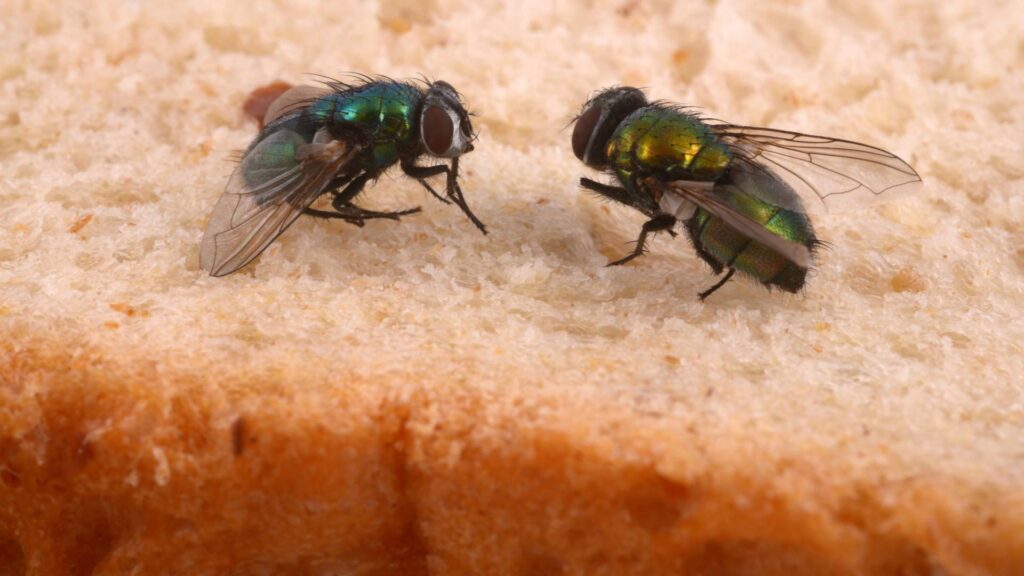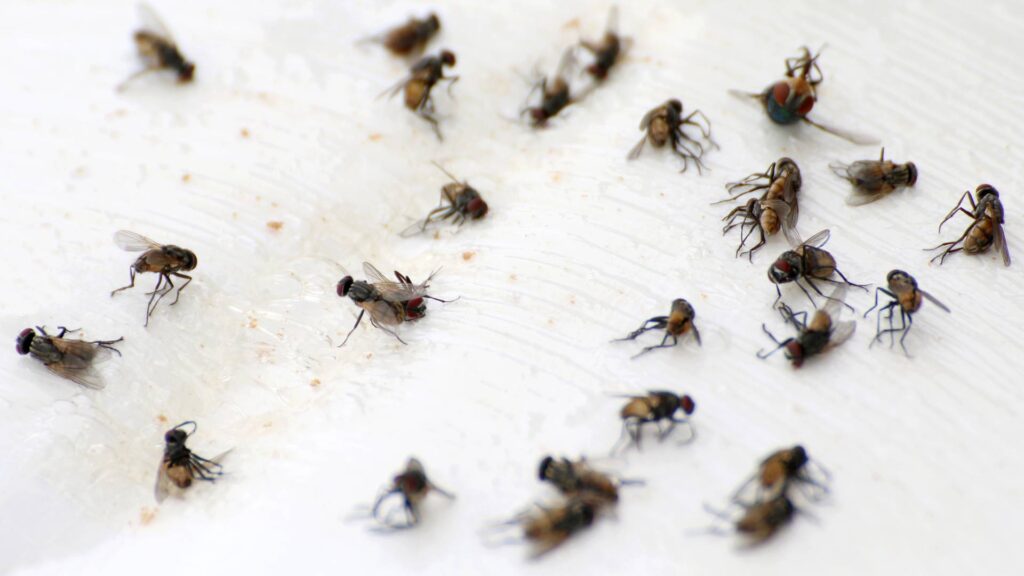Table Of Content
ToggleAs a seasoned pest control expert, I’ve seen firsthand how flies can turn from a minor nuisance into a full-blown infestation if not addressed promptly.
These pesky insects are not only annoying but can also pose health risks by spreading bacteria and contaminants.
In this guide, we’ll explore comprehensive strategies to tackle the fly problem in your home, ensuring a peaceful and hygienic living environment.
Understanding what attracts flies to your house is the first step in effective pest control:
Explore safe pest control for homes with infants.

Combating flies requires a multi-faceted approach. Here’s what you can do:
Understand the costs of professional termite tenting.
For those concerned about safety, especially in homes with infants, exploring options that are pest control safe for infants can provide peace of mind while tackling fly issues.
Sometimes, the best tools are already in your pantry or garden:
Contact us for a customized fly-free pest plan.

When dealing with persistent fly infestations in the home, it’s essential to adopt a comprehensive approach. As experts in the field, we understand that sometimes DIY methods just don’t cut it.
Flies can be more than a mere nuisance; they pose health risks by spreading diseases. That’s why identifying the root cause of the problem is crucial, be it uncovered food, waste accumulation, or entry points like open windows and doors.
Calling in professional pest control services becomes necessary when these pests continue to thrive despite thorough cleaning and home treatment efforts.
Furthermore, understanding the cost of tenting a home for termites can provide a better perspective on the investment needed for comprehensive pest management, highlighting the value of professional services in achieving long-term solutions.
Schedule a quick consultation for targeted fly control.

With years of experience in pest control, I can assure you that tackling a fly infestation in your home is entirely manageable.
By combining preventative measures, timely action, and possibly professional help, you can enjoy a fly-free environment.
Remember, the key is to act quickly and maintain a clean and sealed home to prevent flies from becoming unwelcome guests. Keep these tips handy, and you’ll be well on your way to reclaiming your space from these airborne invaders
To get rid of flies inside your house, maintain cleanliness, use traps, and apply natural repellents. Ensuring that your living space is free of food waste and standing water eliminates breeding grounds for flies. Utilizing sticky traps, electronic fly zappers, or homemade remedies like vinegar and dish soap traps can effectively reduce the fly population in your home.
Yes, a pest control service can effectively get rid of flies. Professional pest controllers have access to a range of tools and techniques, including industrial-grade insecticides and traps, which can quickly and efficiently reduce fly infestations in your home. They can also provide tailored advice and long-term prevention strategies.
Explore safe pest control for homes with infants.
You might be getting so many flies in your house due to accessible food sources and breeding sites. Flies are attracted to food scraps, garbage, and decaying organic matter, where they can feed and lay eggs. Ensuring that your home is clean, waste is properly disposed of, and potential entry points are sealed can help reduce the influx of flies.
Your trusted pest control experts in Southern California. Keeping your neighborhood pest-free!